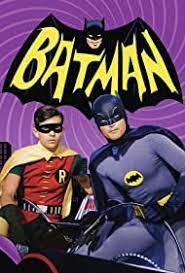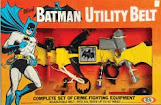 A few years ago I submitted a one-act play to a contest. It didn't win so I ran it here. This year I submitted again, being a glutton for punishment, and got the same result. So here is the new play.
A few years ago I submitted a one-act play to a contest. It didn't win so I ran it here. This year I submitted again, being a glutton for punishment, and got the same result. So here is the new play.THE SEARCH COMMITTEE
___
Cast
of Characters
Chris
They can be any gender and any age, but should be of roughly the same age, so they are more likely to be partners than parent and child.
Scene
Interior.
Time
The present.
SETTING: On the stage are many cardboard boxes and,
if convenient, a few cabinets with drawers and/or closed shelves. Also a couple of stools for sitting when
opening the boxes and cabinets.
CHRIS enters, frantic, followed immediately by TRACY. Throughout the play they keep opening boxes
and cabinets, turning boxes upside-down, etc.
CHRIS
It’s got to be here
somewhere.
TRACY
I can’t believe you lost it.
CHRIS
Me? Who says it was me?
TRACY
Well, it belongs to
you. God knows you won’t let anyone else
touch it.
CHRIS
Like I would trust you with
it.
TRACY
So what are you saying? That I lost the damned thing?
CHRIS
Don’t tell me you’ve never noticed
it.
TRACY
Well, sure. You practically force it on people, you’re so
damned vain about it.
CHRIS
I most definitely am not
vain. I just believe in sharing my good
fortune.
TRACY
That’s right. Everywhere you go people say, “There’s Chris,
the famous philanthropist.”
CHRIS
It’s better than what they say about you.
TRACY
Excuse me?
CHRIS
Never mind.
TRACY
What do they say about me?
CHRIS
Not important. Keep looking.
TRACY
No. You’ve got my interest up now. Do tell me what the world is reporting.
CHRIS
That you’re lucky to hang
around with me. But that you should to
be more careful with my stuff. Where the
heck is it?
TRACY
Where was it the last time
you saw it?
CHRIS
If I knew that I’d look
there, wouldn’t I?
TRACY
Well, where were you
standing the last time you remember
seeing it?
CHRIS
pauses
Right over there.
 CHRIS walks over and opens a
box. It’s empty.
CHRIS walks over and opens a
box. It’s empty.
CHRIS
Damn.
TRACY
And when exactly was that
last time?
CHRIS
It was a Tuesday in late February. The church bells had just rung midnight. A hot wind was blowing across the Serengeti Desert. How the hell am I supposed to remember?
TRACY
Well, since the thing is so
damned precious to you I thought you might have fond memories of it.
CHRIS
Since I didn’t know I was about
to lose it I didn’t bother to take a picture of it in its natural habitat for
my scrapbook. Look, if you were to put
it away—
TRACY
Which I didn’t.
CHRIS
Humor me. Where would you have put it?
TRACY
Oh. Good question.
 looks around, then heads to
one corner
looks around, then heads to
one corner
Ah! Over here!
CHRIS
Oh, give me strength.
TRACY
What now?
CHRIS
You’ve never put anything
there in your life. On the rare
occasions when you do put something in its proper place – and let me say that
that happens so infrequently that each one deserves a party to celebrate it – you
never go over there.
TRACY
Like you would know about
parties.
CHRIS
Excuse me?
TRACY
This is why no one ever
invites you to any parties. Because you
make speeches like that.
CHRIS
I’ve been to more parties
than you have lost wallets.
TRACY
What, have you lost your
wallet too?
CHRIS
No, that’s your specialty. It’s
why you have the credit card cancellation number on speed dial. Damn and blast, where did it go?
TRACY
Take it easy. We’ll figure this out. It’s always in the last place you look.
CHRIS
Don’t say that!
TRACY
What do you mean?
CHRIS
Of all the stupid cliches
that has to be the worst. Of course it’s
in the last place you look. Do you know
why?
TRACY
I suppose because if you
knew where it was—
CHRIS
No! Because when you find it
you stop looking!
TRACY
pause
Well, sure.
CHRIS
So why do people keep saying
that gibberish as if it has great meaning?
TRACY
Because we’re all very
stupid and live for the pleasure of annoying you.
CHRIS
You’re an idiot.
TRACY
And yet somehow you’re the
one who lost your--
CHRIS
I didn’t lose it! I think you did!
TRACY
We’ve already been over
this. I never touch the blasted thing.
CHRIS
Well, I’m glad to hear
that. Because you’re careless with your possessions.
TRACY
While you know where
everything you own is. Right?
CHRIS
Absolutely.
TRACY
You don’t even hear
yourself, do you?
CHRIS
Look. Stop everything. Tracy, look at me.
TRACY puts down a box and looks at CHRIS. They are practically eye to eye.
CHRIS
Are you really a hundred percent certain, absolutely,
guaranteed, in your heart of hearts, that you couldn’t possibly have thrown it
away by accident?
TRACY
dramatic pause
Yes.
CHRIS
furiously
How can you possibly claim
to know that?
TRACY
talking over
If I couldn’t know why did
you bother to ask?
CHRIS
I can’t stand it.
TRACY
Want me to leave?
CHRIS
No! Listen, Tracy, I do appreciate that you’re
trying.
TRACY
Anytime I can help...
CHRIS
…Would be the first.
TRACY
Excuse me? What did you say?
CHRIS
Woodby the First. He was a famous king. Some people don’t know their history.
TRACY
Some people are looking to
get crowned.
 TRACY starts looking in a
different part of the stage.
TRACY starts looking in a
different part of the stage.
CHRIS
Don’t.
TRACY
Don’t what?
CHRIS
Don’t bother looking over
there. I would never put it over there.
TRACY
You sure?
CHRIS
Absolutely.
TRACY
Absolutely, a hundred
percent, guaranteed, in your cold little heart of hearts?
CHRIS
Just look somewhere else.
TRACY moves back.
CHRIS
Not there. You already looked there.
TRACY
So let me be sure I am clear
on this. That’s the place you are likely
to have left it, but I can’t look there because I already did.
CHRIS
Right.
TRACY
And I can’t look over there
because you would never put it there.
CHRIS
Now you’ve got it.
TRACY
I’m running out of options.
CHRIS
I’m running out of
patience. Just keep hunting.
TRACY starts reaching around
high in the air
CHRIS
What are you doing now?
TRACY
You’ve forbidden me from
looking in the tangible places so I thought I’d try some imaginary ones.
CHRIS
You are an idiot.
TRACY
 You’re repeating yourself. Look, maybe it doesn’t even exist, have you
thought of that? In that case imaginary
places would be the best place to search.
You’re repeating yourself. Look, maybe it doesn’t even exist, have you
thought of that? In that case imaginary
places would be the best place to search.
CHRIS
It’s real. You know it’s
real. Please, keep searching.
TRACY
I think we have long passed
that point. I think we have established
beyond the laws of probability that your precious McGuffin, your ring of power,
your veritable Maltese Falcon, has vanished forever and will no more—
TRACY is looking in yet
another box.
TRACY
Well, fry me a banjo.
CHRIS
What? Have you got it?
TRACY
Look!
TRACY pulls an object out of the box. What it is hardly matters, except it should
be large enough for the audience to see, and obviously one-of-a-kind. I imagine a brightly colored hat with
feathers and bangles.
CHRIS

You found it! Thank you so much! I’ve been looking—
CHRIS is holding it now.
CHRIS
This is the wrong one.
TRACY reacts.
CURTAIN











.jpg)




